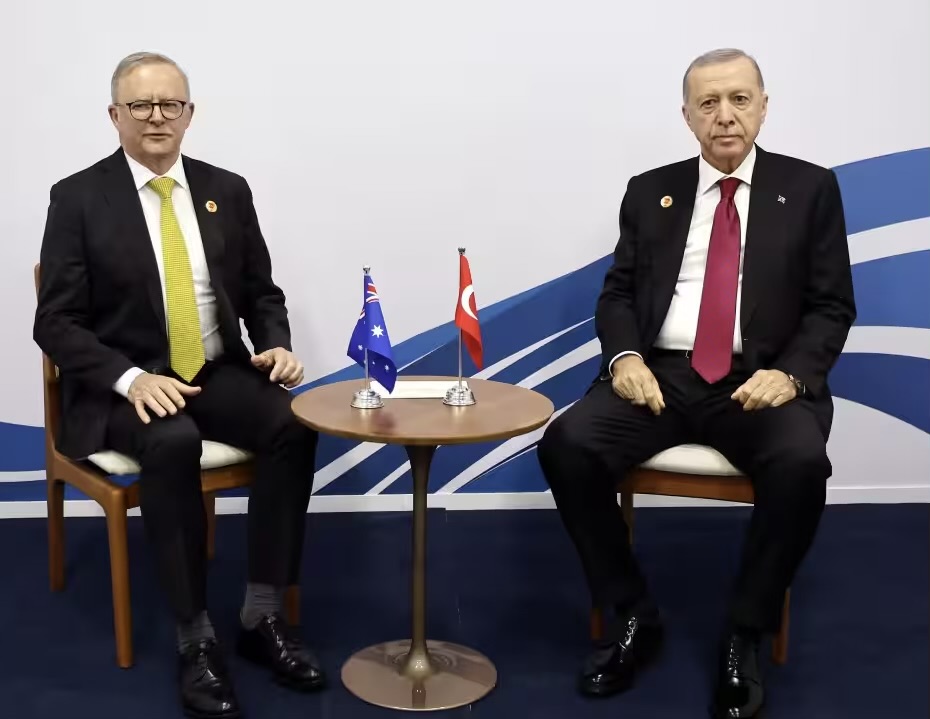Turkey and Australia reach agreement on COP31, disappointing Pacific islands
The two countries struck a deal after divisions had led to speculation about a fallback on the organisation's headquarters in Bonn. Turkey will host the event, while Australia will chair the talks. Concerns remain about the true effectiveness of the collaboration between the two countries, coupled with criticism from Pacific nations who had hoped to see the event take place in their region.
Ankara (AsiaNews) – Turkey will host the next COP, while Australia will play a leadership role in that event.
As final negotiations take place at COP30 in Belem, Amazonia, on the final document for the UN Climate Change Conference, which ends tomorrow, the dispute between Ankara and Canberra over hosting COP31, the 2026 edition of this annual conference, ended with a mutually acceptable agreement.
According to UN rules, the conference should have been held in a West European country, Australia, or another Oceanian country. The Pacific island nations fall into the latter group, but the Turkish-Australian deal has left out in the cold despite lengthy discussions with the Australian government regarding a joint initiative.
A consensus is required to decide who will host the conference, but hitherto none of the candidate countries seemed willing to back down.
The turning point came when Australia accepted Turkey's offer to forgo hosting the event in exchange for leading the talks and organising the end of the COP30 conference currently underway in Brazil, which will guide the working group leading up to next year's event.
This unusual solution surprised experts and analysts, since the conference chairperson had traditionally been a leader from the host nation.
Playing down risks and concerns about the practical functioning of this new partnership, Australian Prime Minister Anthony Albanese called the compromise with Turkey an "outstanding result”, adding that Pacific issues will remain “front and centre”.
The Australian leader also said that he had spoken with his Papua New Guinea counterpart James Marape and with Prime Minister Rabuka of Fiji.
Despite Australia's reassurances, however, the first critical voices are already emerging from Pacific nations, effectively excluded from organising the event despite experiencing firsthand the problems associated with climate change.
Regarding this, Papua New Guinea's Foreign Minister Justin Tkatchenko said that "we are all not happy. And disappointed it's ended up like this”.
Solomon Islands leader Jeremiah Manele had previously said he would be "disappointed" if Australia did not secure the event.
The countries currently meeting at COP30 in Belém said they were relieved to have reached a compromise, as failure to agree on the venue would have been an embarrassment for the UN.
Turkey, which proposed hosting COP31 in the city of Antalya, believed it had a strong case since it had withdrawn its bid in 2021, to let the United Kingdom hold the conference in Glasgow.
If neither country was willing to reach a compromise, the meeting would have been held in the German city of Bonn, home to the UN climate body.
The compromise reached stipulates that the pre-COP meeting will be held on a Pacific island, while the main event will be held in Turkey.
Australian Climate Minister Chris Bowen will chair the conference, but Turkey will also appoint a chairperson to manage the venue and organise meetings and schedules.
Canberra's backtracking is likely to prove controversial for Prime Minister Albanese, who had exerted long and intense pressure to gain the support of other West European nations.
The compromise will have to be ratified by over 190 countries gathered in Brazil for COP30, but given the challenges encountered in reaching the compromise, it is highly unlikely that there will be any objections.
Australia had submitted its candidacy for a “Pacific COP”, thanks to the collaboration of the region’s island nations, which are among the most affected by climate change and rising sea levels.
The Australian government had already invested over US$ 4.5 million in its bid, confident in the support of a large number of countries that would have allowed it to resist the Turkish bid.
However, despite the disappointment of Pacific region leaders, some officials – like David Dutton, director of research at the Lowy Institute and until September Australia’s assistant secretary of climate diplomacy – are calling it a "good outcome”.
The Turkish option “alleviates some of the costs and burden of organizing the COP,” he said, "creating opportunities for Australia and the Pacific to do something about it."
Turkey, a country straddling Europe and Asia, is also quite pleased, even though it faces contradictions and environmental challenges.
According to environmentalists, Ankara today needs to take more decisive political actions to address the challenges posed by climate change if it is to achieve net zero target by 2053.
Even though its emissions per capita are low, rising temperatures are weakening the decarbonisation capacity of Turkey's forests, particularly by increasing the risk of wildfires.
Meanwhile, coal still covers 30 per cent of its total energy supplies and generates over a third of its electricity. Shifting to renewable energy should reduce costs, reduce dependence, and address air pollution.
In fact, renewables have more than doubled, with the country ranking eleventh in the world and fifth in Europe in terms of renewable energy capacity. However, support will need to be provided to workers and regions that are heavily dependent on the coal industry.
03/12/2007
05/10/2022 16:09







.png)










